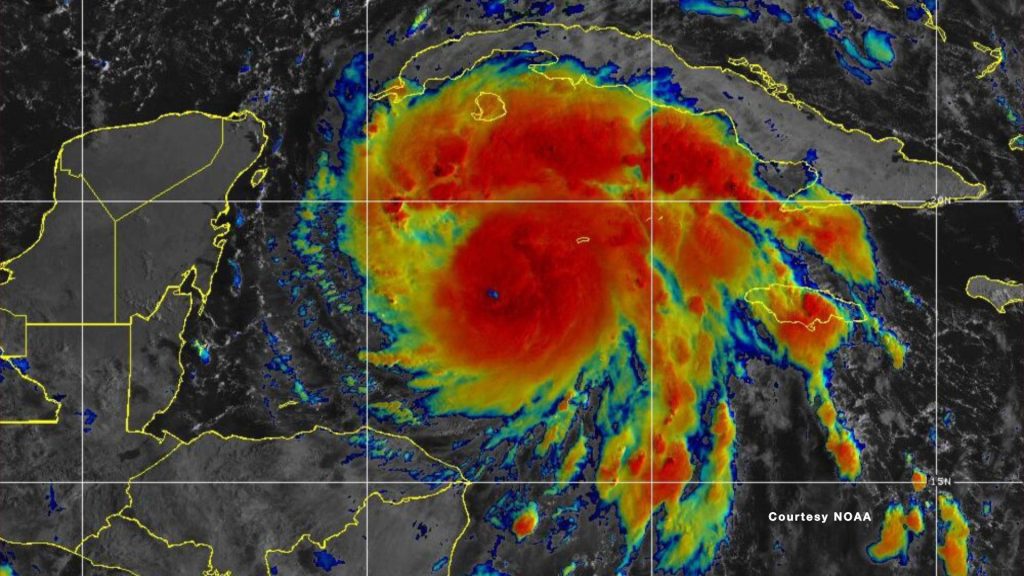-
Health & Wellness
Staying healthy and safe during a hurricane or other severe weather

The Mid-Atlantic hurricane season begins June 1 and ends Nov. 30. Various reports indicate the 2023 season will be an active one. The National Hurricane Center says it is anticipating at least 15 named storms, with at least three reaching significant status.
Taking time to prepare in advance of severe weather can help reduce stress and ensure personal safety and well-being when a storm does arise.
"Past experiences show it can take one storm to have an impact, so it is important to make a plan and assemble supplies for you and your family in advance of any severe weather," says Dr. Brittany Beel, a Mayo Clinic emergency medicine physician.
Location safety
"It is important to have a safe place to ride out a storm. That might be a room in your home, it might be driving out of town to a hotel or staying with relatives," says Dr. Beel. "As you consider your location, you will also want to think about your loved ones, such as elderly relatives who might require special assistance and pets."
And regardless of whether you stay or go, Dr. Beel also recommends unplugging electronics in advance of a storm. "Certain items could become potential shock or fire hazards, especially if there is a risk of flooding," she says.
Also, think about the heat. "No electricity means no air conditioning, so that could lead to heat stroke and heat exhaustion. I always recommend battery-powered fans to keep cool."
Get your supplies ready
Whether you stay at home or evacuate elsewhere, supplies will be needed to weather a storm and the aftermath. Typically, the recommendation is to have enough nonperishable food and water for each person for at least three days.
Dr. Beel says that, while you might be tempted to stock up on certain food prior to a storm, you should limit the amount of food that requires refrigeration. "This will be the first food to spoil if the power goes out. You don't want food poisoning during a severe weather event."
She notes that you should check expiration dates on canned foods and rotate out items as needed.
Dr. Beel says water is important for hydration, but the body needs more.
"Electrolytes help your body use water effectively so consider other drink options that have electrolytes to make sure your body is replenished with the tools it needs to keep functioning," she says.
Also, when you calculate how much water you need, "Don't forget to consider what you need for cleaning or bathing. And remember your pets," she says.
There are many supply lists available online, but in addition to extra batteries and flashlights, Dr. Beel says it's imperative to review health care necessities and create a first-aid kit in advance of a severe weather event.
In addition to having enough medication on hand to last seven to 10 days, Dr. Beel also says to think about any medical devices. "You will want to have a supply of batteries and backup power for equipment such as oxygen, glucose meters or other devices."
Lastly, keep a list of health care professionals, phone numbers and all medications you take, including over-the-counter items, with the names, doses and conditions the medicine is for, in your emergency kit as well as any important papers, such as health records, health care directives and living wills.
Learn more
Additional hurricane preparation lists and other tips are available here:
- Centers for Disease Control and Prevention
- Department of Homeland Security
- Federal Emergency Management Association
In addition, Mayo Clinic has more information on hurricane health and safety preparedness and storm cleanup tips:
- "3-day plan to eat from a can."
- "Safety tips during a storm."
- "Mayo Clinic Minute: Stay safe after storm cleanup."
- "Mayo Clinic Minute: Staying hydrated during hurricane recovery."
Related Articles







